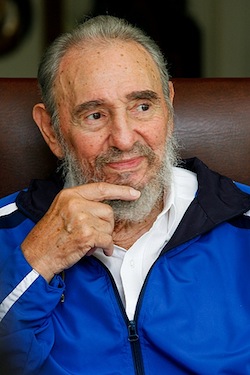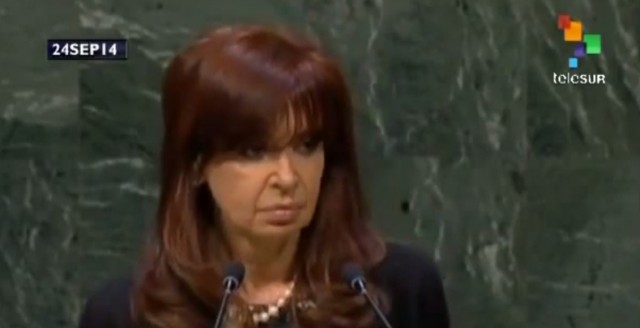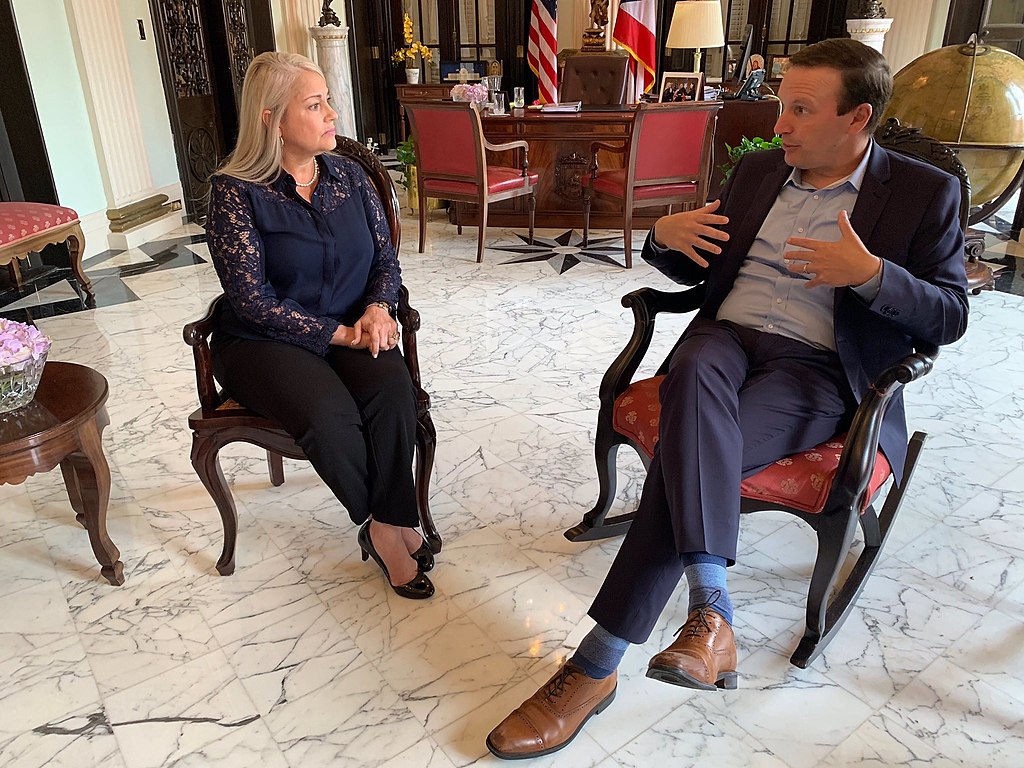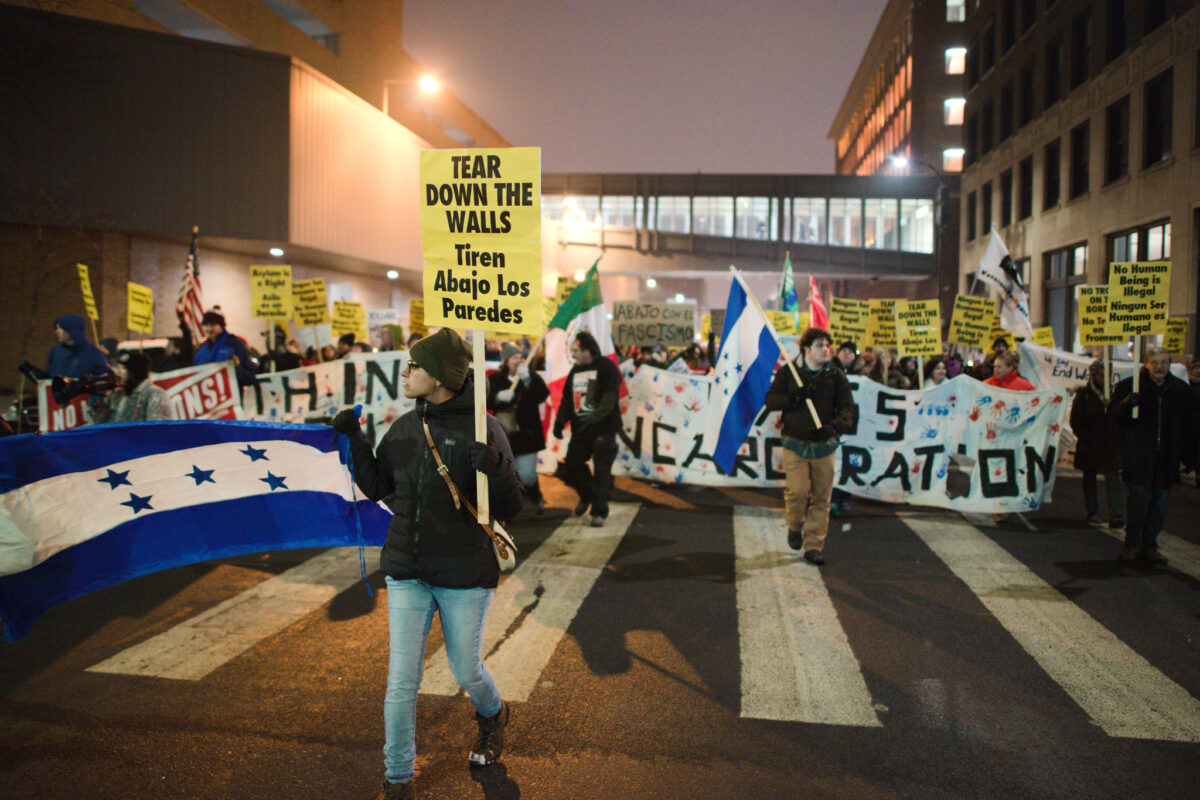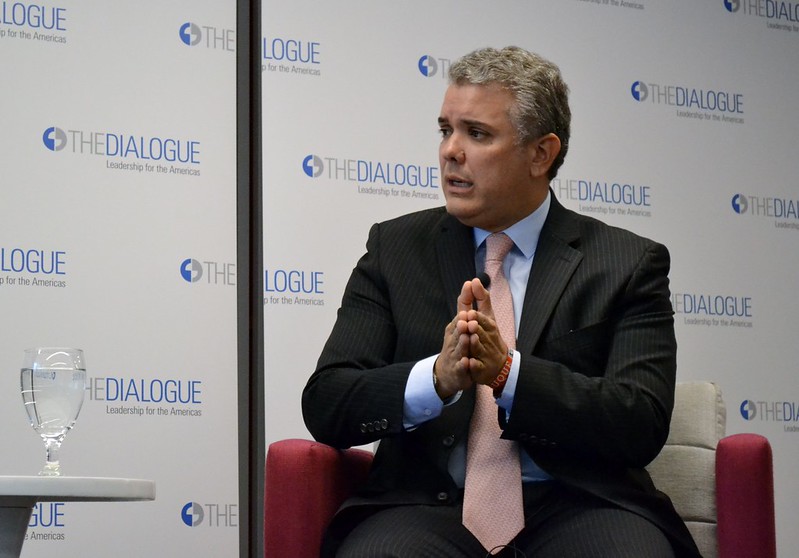
Latin America: Week in Review
Indigenous Leader and Wife Assassinated In Colombia
October 14, 2020 By Staff
TODAY IN LATIN AMERICA
COLOMBIA: Indigenous leader Fredy Güetio Zambrano was killed along with his wife in the department of Cauca this past Monday. The couple was shot by unidentified armed men upon arriving at their home, according to a report by the Association of Indigenous Cabildos of Northern Cauca. There have now been 76 Indigenous people killed in Cauca in 2020 alone. In 2019, a record number of Indigenous and social activists were killed.
On Tuesday, Colombia’s Indigenous Movement Minga marched on Cali, the capital of the Valle del Cauca department, and demanded a meeting with President Iván Duque about state repression of Indigenous communities. The activist group also wanted to discuss the violence against social and Indigenous leaders rampant in the country. Interior Minister Alicia Arango and Cali Mayor Jorge Ospina attended instead of President Duque. In response, the Minga representatives left the meeting and announced that on Oct. 14 they will begin their march to Bogotá for an audience with the president.
Headlines from the western hemisphere
SOUTHERN CONE
PARAGUAY: Protestors from across the country marched on Tuesday in Asunción to demand forgiveness of “onerous and unpayable” debts for rural communities. The farmers, rural residents and their families are prepared to stay for days until the government provides concrete proposals to their demands. Besides debt forgiveness, the protestors are demanding an emergency agrarian plan providing 3 months support for family farms. A part of their demands includes a 20% increase in funds for education, health, and housing, as well as stronger protections for indigenous communities.
ANDES
BOLIVIA: The Movement for Socialism (MAS) party expressed concern on Tuesday about the validity of Bolivia’s Oct. 18 general elections. In November 2019, the military demanded that former President Evo Morales resign after weeks of protests disputing the October 2019 elections results. A MAS spokesperson also denounced Bolivia’s Supreme Electoral Tribunal (TSE) for a lack of transparency on vote counting policies and that the ballot boxes are being managed by the military and police forces, who were involved in the 2019 political crisis.
ECUADOR: The Confederation of Indigenous Nationalities of Ecuador (CONAIE) formally accused President Lenín Moreno’s government of crimes against humanity in the October 2019 government protests. Dozens of people died and around 1,500 were injured in last year’s demonstrations against a government decree that eliminated gasoline subsidies and increased fuel prices. Over the last year, CONAIE has demanded an investigation into the violence, but the government continues to deny that there were any human rights violations.
CARIBBEAN
CUBA: Following seven months of lockdown and economic downfall, Cuba is entering Phase III of reopening and “relaxing” coronavirus restrictions. Shops and airports across the country will begin reopening in the hopes of drawing tourism back to the island. Face masks and social distancing will be continued under these new guidelines, but contact tracing measures will change. Individuals who suspect they have been in contact with a COVID-19 positive person will no longer have to self-isolate. Part of this relaxation comes from a need to reinvigorate the economy in response to President Donald Trump’s new sanctions against the country.
PUERTO RICO: Health Secretary Lorenzo González Feliciano would not say at a press conference on Tuesday if the new set of COVID-19 restrictions that will take effect on Saturday will be more or less restrictive than current regulations. Governor Wanda Vázquez will sign an executive order in the next few days to enact the new restrictions, the details of which have still not been finalized. González Feliciano added that hospitals are not overwhelmed by COVID-19 patients, but that the rate of deaths, around three per day, is still “worrying.”
CENTRAL AMERICA
COSTA RICA: Following the continued protests throughout the country, President Carlos Alvarado Quesada condemned the violence of some protestors after they tried to break into a police cordon, resulting in 11 injuries. Alvarado Quesada said the 28 people detained during the protests will face the full force of the law. Despite the momentary violence, the protest that took place in San José was otherwise peaceful. Hundreds marched through the city to demand the government abstain from implementing new tax laws. The lead protesting group, the National Rescue Movement, is being blamed for inciting violence. In response, the group said that their march was infiltrated by people who wanted to create “chaos and disorder.” For the first time in almost two weeks, major roads and routes remained clear of blockades.
EL SALVADOR: For the third time, the Bukele administration blocked a judge from accessing military files related to the 1981 El Mozote massacre, which resulted in the death of 800 civilians during El Salvador’s Civil War. Judge Jorge Guzmán went on a scheduled visit to the Second Air Brigade to receive the files that might have evidence of the military’s involvement in the massacre, but was denied access by the Defense Ministry. President Nayib Bukele said the restrictions are in place because the judge has no jurisdiction and that the nature of the files is confidential. However, the Constitutional Chamber of the Supreme Court of Justice ruled that the military files are not confidential. Despite the ruling, the government continues to block the release of the documents.
NICARAGUA: Following a police siege of an opposition group meeting, two people were injured by supporters of President Daniel Ortega. Journalist Veronica Chavez and Josue Garay, a spokesperson for the Blue and White National Unity (UNAB), sustained injuries that left Chavez seriously wounded. Prior to the siege, the police searched the vehicles of those in attendance and fined them, in an attempt to prevent further meetings between the UNAB and local leaders. Those in the gathering argued that, under the Constitution, they have the right to associate and meet. The event illustrates the increasing repression of opposition groups in the country by the Ortega administration.
NORTH AMERICA
MEXICO: A dissident teachers union in the state of Oaxaca announced that they do not support returning to classes even if the conditions set by the government for restarting in-person instruction are met. A representative for Section 22 of the National Coordination of Education Workers (CNTE) said that the decision of when to return to classes will be made by teachers in consultation with parents, who will consider a variety of factors in each locality that federal authorities may ignore. Over the weekend, the CNTE announced that COVID-19 has killed more than 50 teachers in Oaxaca.
MEXICO: Senators from the opposition National Action Party (PAN) grilled Coronavirus Tsar Hugo López-Gatell during a health commission session in the Senate over his handling of the pandemic, eventually disrupting the session and forcing it to be suspended. Senator Lilly Téllez criticized López-Gatell for Mexico’s low testing rate, which is less than a twentieth of that of the United States. Later, Senator Martha Márquez Alvarado unfurled a banner showing a cartoon of López-Gatell accusing him of being too accommodating to President Andrés Manuel López Obrador. In the cartoon, López-Gatell is seen covering a pile of skulls with a sheet, with the text, “-How many deaths have there been? -Whatever you say, Mr. President.” Commission President Miguel Ángel Navarro decided to end the session early after the reveal of the banner.
